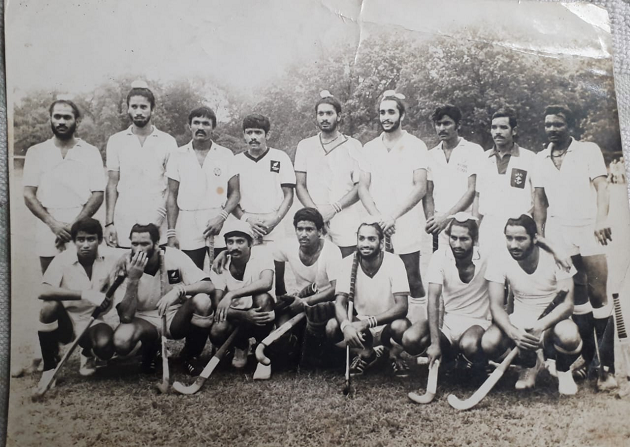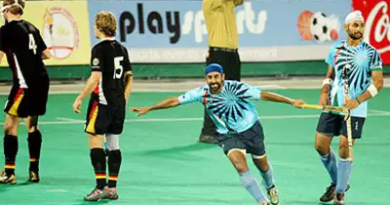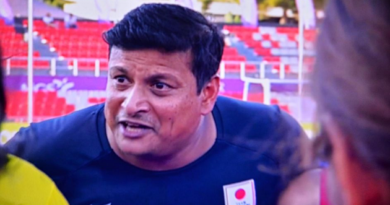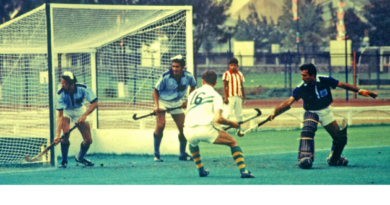‘Dutch Players Walked Back to their Dressing Room when India were Awarded Extra Time Penalty Stroke at 1973 World Cup’
World Cup Special
It was a case of so near and yet so far for India at the 1973 Men’s Hockey World Cup in Amstelveen when they went down to the hosts Netherlands in a needle affair at the Wagener Stadium. There is no doubt that India had every opportunity to embrace glory, especially after sewing up a 2-0 lead riding on two early goals from late Surjeet Singh, but the Dutch egged on by the home crowd and powered by a brace from Ties Kruize, clawed their way back to level the scoreline 2-2 to stretch the match into a gruelling 45-minute extra time that failed to break the logjam and subsequently Netherlands had the last laugh in penalty strokes, thus winning their maiden World Cup.
Read
Former Indian men’s hockey team goalkeeper Charles Cornelius gets excited when the confabulation veers around the 1973 World Cup – he recalls how the MP Ganesh-captained Indian side was supremely fit thanks to the ‘behind-the-scenes outstanding work’ by trainer Jagmohan Singh. “We were at our best as a team in the 1973 World Cup because we were fit as a fiddle and our trainer Jagmohan Singh had readied us at Patiala for the big occasion. We played the final match that lasted for over hundred minutes (around 115 minutes with 70 minutes of regulation and three sessions of 15 minutes each of extra time) and the boys did not appear to be jaded,” Cornelius traces the exciting memories of the 1973 World Cup in a chat with Hockey Passion.

The 77-year-old illustrious former goalkeeper, who was also part of India’s bronze-winning 1971 World Cup team as well as part of India’s bronze-winning 1972 Olympics team, relives the moments when centre-forward BP Govinda missed a penalty stroke in sudden death. “I still remember the Netherlands players had trudged back to their dressing room at the Wagener Stadium because they thought it was all over for them. But they returned from their dressing room jumping for joy as unfortunately Govinda could not convert his stroke. He tried to put in the ball in the left corner but it trickled out wide. The Dutch goalkeeper did not need to make a save as he had dived to his right as Govinda pushed the ball towards the left as the match headed into penalty strokes,” relives Cornelius bubbling with child-like excitement.
It just shows how hockey can be a great leveller – Govinda was an ‘overnight hero’ after his late goal enabled India to put it across arch-rivals Pakistan by a solitary goal in the semifinal to sneak into the final.
Read When Wrong Knee Injury Treatment Brought Abrupt Halt to Charles Cornelius’ Promising Playing Career!
India could have easily made the scoreline 3-0 in the first half and Surjit could have scored a splendid first half hat-trick, but the Malaysian umpire, Vijayanathan disallowed the goal. “We argued with the umpire but he was categorical that the ball was not stopped properly during the PC routine. It was an umpiring howler that Vijayanathan acknowledged after the match. Had we taken a 3-0 lead it would have been really tough for the Dutch to mount a comeback, recounts the Chennai-based former ace goalkeeper.

Read When Ajit Singh Scored the Fastest Olympic Goal at Montreal in 1976
India were made to pay for the umpiring blunder as Ties Kruize helped the Dutch reduce the deficit as India led 2-1 at half-time. “Coach late Randhir Singh Gentle during the half-time break told us to launch all-out attack but you have to understand that the Netherlands also played well in the second half and in the end the match had all the ingredients of a final match as it went right down to the wire, ” he says.
The runners-up finish in the 1973 World Cup acted as a ‘big motivation’ for India to set the record straight and come out with flying colours, finishing strongly at the finishing line to clinch the 1975 World Cup.




